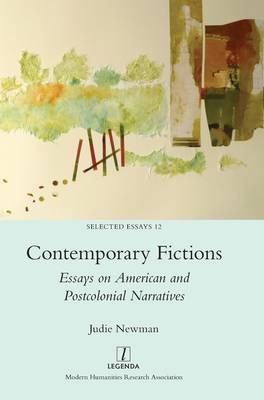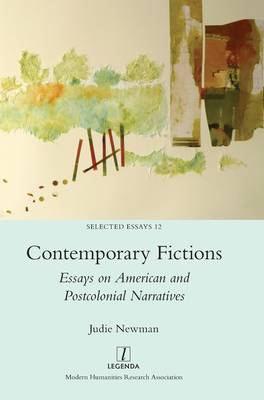
- Afhalen na 1 uur in een winkel met voorraad
- In januari gratis thuislevering in België
- Ruim aanbod met 7 miljoen producten
- Afhalen na 1 uur in een winkel met voorraad
- In januari gratis thuislevering in België
- Ruim aanbod met 7 miljoen producten
Omschrijving
What does it mean to be contemporary? To write contemporary fiction? In this major collection of twenty-five essays Newman interrogates the value of the concept of "the contemporary" as a cultural and literary category, exploring novels and short fiction by American and postcolonial writers, including Marilynne Robinson, John Updike, Saul Bellow, Grace Paley, Nadine Gordimer, J. G. Farrell, Ruth Prawer Jhabvala, Bharati Mukherjee, Peter Høeg, Dalia Sofer and André Dubus III, among others. In a sophisticated interrogation of the politics (and sexual politics) of narrative technique, Newman engages with major intellectual currents of the period, drawing upon thinkers such as Michel Serres, Guy Debord, Erving Goffman, Camille Paglia, Marcel Mauss, Julia Kristeva, Mary Douglas, and Eve Kosofsky Sedgwick to analyse fictional representations of the Holocaust, the struggle against apartheid, Vietnam, the 9/11 terrorist attacks, the Iranian revolution and the aftermath of Empire.
Judie Newman is Professor Emeritus of American Studies at the University of Nottingham and has published widely in the fields of American and Postcolonial literature.
Specificaties
Betrokkenen
- Auteur(s):
- Uitgeverij:
Inhoud
- Aantal bladzijden:
- 358
- Taal:
- Engels
- Reeks:
- Reeksnummer:
- nr. 12
Eigenschappen
- Productcode (EAN):
- 9781781883297
- Verschijningsdatum:
- 28/09/2020
- Uitvoering:
- Hardcover
- Formaat:
- Genaaid
- Afmetingen:
- 170 mm x 244 mm
- Gewicht:
- 766 g

Alleen bij Standaard Boekhandel
Beoordelingen
We publiceren alleen reviews die voldoen aan de voorwaarden voor reviews. Bekijk onze voorwaarden voor reviews.









